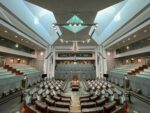The Chancellor has announced plans to sell the government stake in Royal Bank of Scotland, even though it probably means booking a loss for the taxpayer, which currently stands at £7.2 billion.
The government pumped £45 billion into Royal Bank of Scotland to save it from collapsing during the financial crisis, but it now looks like the taxpayer is not going to get all that money back. However if you throw in fees and the sale of the bits of Lloyds, Bradford and Bingley, and Northern Rock, overall the government predicts a £14 billion windfall for the taxpayer. The good news is that the Chancellor plans to offer Royal Bank of Scotland shares to the general public, which probably means they will be able to buy in at a discount to the market price, or with bonus shares attached. We expect such a high profile sale to generate a lot of interest from private investors, ditto for Lloyds. Royal Bank of Scotland is in the process of becoming a less risky, simpler bank. It isn’t there yet, but progress is being made, and a modest dividend may even be on the cards in the not too distant future.’
Royal Bank of Scotland to be sold off, even if it means a taxpayer loss. That loss would stand at £7.2bn based on Friday’s market price. It may be the government ends up selling shares above that price, but they would need an average share price about 20% higher than where we are today to break even. Shares will initially be drip fed to institutional investors, but the Chancellor anticipates offering shares to the general public in due course. No olive branch for HSBC on the levy – the Chancellor was rumoured to be planning a change to the bank levy, which didn’t come to pass. The levy has come under scrutiny of late because HSBC are considering relocating their headquarters, which could save them hundreds of millions of pounds each year on the bank levy they pay. The issue for HSBC is the levy is taxable on their worldwide operations, not just what they do in the UK. They were of course a bank that didn’t have to be bailed out by the taxpayer, but are still shouldering about a third of the bank levy.
The July Budget will deliver further savings in public expenditure and further action against tax avoidance and aggressive tax planning- no real surprises there. The Chancellor also announced plans to entrench a commitment for all governments to run a budget surplus in ‘normal’ times. It seems a sad indictment of our politicians that we can’t trust them to be economically responsible without make it unlawful for them not to be. ‘We don’t save enough, we don’t invest enough’- the exact words of the Chancellor; we believe there should be a Savings Minister who is responsible for looking after the interests of investors in government, and to make sure the framework is there to enable individuals to save effectively for their future. The government has sold off more of its stake in Royal Mail- to institutions. We think it is disappointing private investors weren’t invited to the party, but take some solace that the Chancellor is thinking of Sid when it comes to selling off Royal Bank of Scotland and Lloyds.






